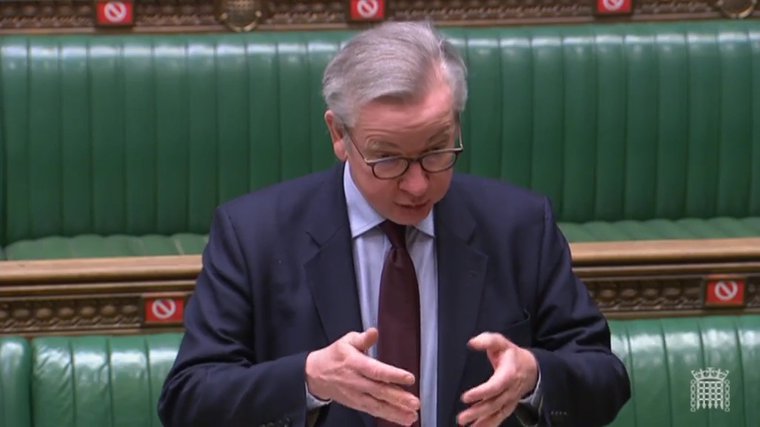So, what is the new definition and why is it causing so much controversy?

The government has set out a new definition of extremism, which it says is being done in response to the increased extremist threat since the 7 October Hamas terror attacks in Israel and as part of a drive to crackdown on Islamist and far-right extremism in the UK.
Yet the new definition has led to criticism from human rights campaigners, civil society groups as well as even Tory MPs who warn that it could have a chilling effect on free speech as it is too broad in scope and could be used to clamp down on a range of groups.
So, what is the new definition and why is it causing so much controversy?
New definition explained:
The new definition describes extremism as “the promotion or advancement of an ideology based on violence, hatred or intolerance” that aims to “negate or destroy the fundamental rights and freedoms of others” or “undermine, overturn or replace the UK’s system of liberal parliamentary democracy and democratic rights”.
It differs from the old definition in that there has been a shift in focus from action to ideology. The previous definition, introduced in 2011, said extremism was the “vocal or active opposition to fundamental British values, including democracy, the rule of law, individual liberty and mutual respect and tolerance of different faiths and belief”.
What does it mean in practice?
The new definition means that ministers and civil servants as well as quangos will be banned from talking to or funding organisations that are deemed to be in breach of the new definition of extremism.
The new definition will not be enshrined in law, will only affect government, and will not be statutory. Nor will it make any difference to policing.
It is also worth pointing out that organisations or individuals added to the list will not be criminalised, unlike terrorist groups.
Although the government has not as of yet published a list of organisations covered by the new definition, in the House of Commons, Gove went on to list some organisations that will be looked at.
These include British National Socialist Movement and Patriotic Alternative. He also named the Muslim Association of Britain, as a British association of the Muslim Brotherhood, Cage and Mend.
What are critics saying?
A number of human rights campaigners, civil society groups as well as even Tory MPs have warned that the new definition could have a chilling effect on free speech.
During PMQs this week, Tory MP Miriam Cates warned that broadening the definition of extremism could have “a chilling effect on free speech”.
“In separating the definition of extremism from actual violence and harm, we may criminalise people with a wide range of legitimate views and have a chilling effect on free speech”.
There are also fears among civil liberties groups that the new definition is a further attempt to limit protest and free speech, with some Tory MPs suggesting people like anti-abortion campaigners, or climate protesters, could end up being captured by the new definition.
The Archbishop of Canterbury, Justin Welby, warned the proposals risk “disproportionately targeting Muslim communities”, a point echoed by Zara Mohammed, head of the Muslim Council of Britain.
Basit Mahmood is editor of Left Foot Forward
To reach hundreds of thousands of new readers we need to grow our donor base substantially.
That's why in 2024, we are seeking to generate 150 additional regular donors to support Left Foot Forward's work.
We still need another 117 people to donate to hit the target. You can help. Donate today.



